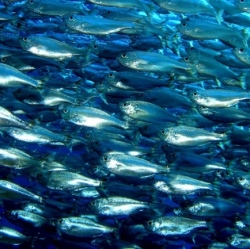
The turquoise killifish is largely unremarkable except for how fast it ages. In just three months, it goes from young to old one. For scientists who study ageing, the turquoise killifish could be the key to their future experiments. The fish is one of the shortest lived vertebrates in the world.
After a few months, writes Carl Zimmer in the New York Times, they lose muscle, become infertile, and get sick more often, not unlike humans. The vast majority of scientific research is done in a few model organisms: mice, rats, fruit flies, and a little nematode worm called Caenorhabditis elegans. Fruit flies and C. elegans are invertebrates, making many questions about ageing in humans, such as why our bones get frail as we get older, impossible to study. Mice and rats are closer to humans, but they live for years rather than months.
Enter the turquoise killifish, where rapid ageing is a plus rather than a minus. A Stanford lab has spent years developing it into a model organism. In a paper published recently in Cell, they detail a genetic toolkit that includes the fish’s entire sequenced genome as well as the locations of several ageing-related genes. New genetic tools like CRISPR are helping scientist identify relevant genes more easily than ever. Anti-ageing drugs could also be tested on the fish.
